In My Top 10 Television Characters, various members of Autostraddle’s TV Team will be telling you about the TV characters nearest and dearest to our hearts, EVEN the ones that aren’t lesbian/ bisexual / or queer. Today, Autostraddle’s Deputy Editor Carmen, shares her Top 10.
Much like when I ranked my Top 10 Television Shows for you, I once again struggled because I couldn’t decide on a fair metric. A lot of my favorite shows and favorite characters overlap (that’s probably not surprising), but still I wanted each list to be able to stand on its own. I toyed with the idea of making a list of my Top 10 Favorite Bossy Femmes, because once you look at my love for Bette Porter, Santana Lopez, Lafayette Reynolds from True Blood… well, it’s not hard to see the archetype trend in play.
What felt most true is that the best way I could measure how much I loved a character was to pick the ones that I kept on loving, even long after their shows stopped doing the same. The characters I felt a need to “show up for” and commit. The ones who kept going, who made a home week-after-week, with little care or recognition, even when they deserved so much more. And that leads us to this list. A vague and cobbled together matrix of: how much I loved these women; how badly they were sidelined by their show; and despite all that, the ways their story touched or impacted my own, carrying them with me in my pocket as I figure out my own way through life.
Is it a coincidence that this list of “women who deserved better” is comprised of women of color — and almost exclusively queer women of color? Given the intertwined histories of sexism, racism, and homophobia in this country, I think not.
10. Anissa Pierce and Grace Choi, Black Lightning
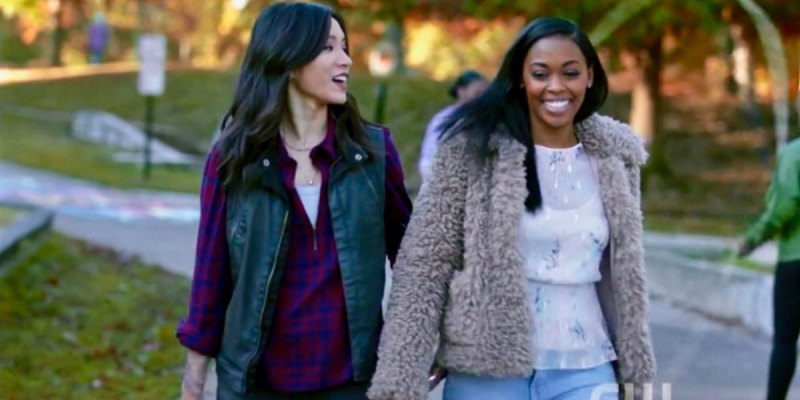
Ok so Anissa and Grace have just barely scraped their way onto this list based fully on their potential.They’ve had more obstacles thrown at them, self-sabatoged by their own writers’ room, than most — inconsistent screen time for Grace, and innumerable, illogical off-screen relationship developments for them both. Every time the actors seem to finally get their way off the ground, the writers’ saddle them even more baggage that no one asked for. Still, despite all of that, Chantal Thuy and Nafessa Williams have found such chemistry and joy together that Thunder Grace remains my favorite supercharged possibility.
There are these unexpected moments, maybe about once or twice a season, where Grace knows Anissa’s french fry order, or Anissa spits some corny lovesick lines in bed, when it is just… right. Somehow Chantal Thuy and Nafessa Williams have found a way to make their relationship feel as lived in and loved as any of Black Lightning’s heterosexual couples, despite getting less than a quarter of the screen time (and that’s being generous). They have IT. Whatever “it” is. Last weekend, a friend and I were texting our superhero movie rankings, as one does, and she said: “My actual blockbuster dream is for superhero teenage girlfriends who talk to each other about their emotions.” They aren’t teenagers, but I think that’s why I haven’t been able to shake Anissa and Grace from my mind lately. They really could be the dream.
9. Kat Edison, The Bold Type
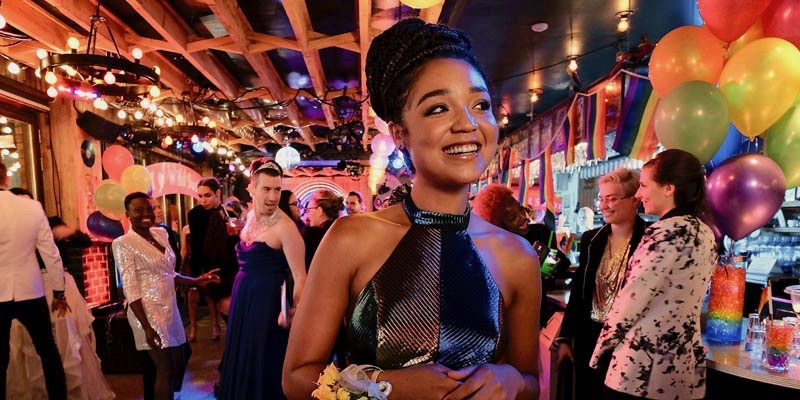
I’m not going to waste my precious little time explaining once again why Kat Edison deserves so much more from The Bold Type. Natalie has already done so, impeccably, multiple times this summer. Instead I want to talk about what I’ve loved.
In between the down swings, Kat Edison has been effervescent. She’s filled with boundless energy and a willingness for self-exploration and improvement. She doesn’t shy away from tough conversations. She’s brave, always leading with her heart first, even when its at her detriment. She loves her community and more importantly, she fights for them. She’s a loyal friend. Kat reminds me to be my best. To never stop growing. What’s more, she’s provided the same lessons to the actress portraying her. Earlier this summer, Aisha Dee risked her career when she publicly spoke up against frankly the anti-Black treatment she has received behind-the-scenes of The Bold Type. She simply said, it was Kat would do. May we all do the same.
8. Nova Bordelon, Queen Sugar
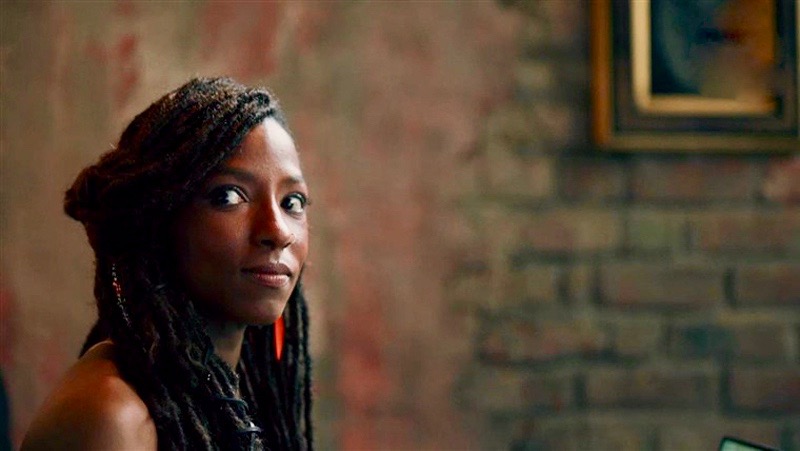
In its first season, Queen Sugar set itself away from the pack when they wrote Rutina Wesley as a pansexual, Black, marijuana growing, social justice oriented, activist and writer. In doing so, they created one of the most intimately familiar portrayals of a queer Black woman that I’ve seen.
Nova Bordelon is the first time on television where I have seen a queer black women character that feels like the queer black women that I know and love in my life. She’s committed to community, not only through her activism — but in her spiritual work and everyday life. She performs healing sessions for her family and neighbors. When a hurricane hits the area, Nova won’t join her family in safety until she and her girlfriend Chantal make sure all the elderly in their neighborhood have food and boarded windows. She sells the marijuana she grows to the young men around her — and includes flyers for the next Black Lives Matter protest with each purchase, reminding them, “You would want someone to march for you”… She’s brave, she’s infinitely proud of her blackness, and she loves from her soul.
I know Nova, from her locks to her back tattoo and flowing dresses, to her hand crafted, larger than life earrings. Unlike some others on this list — with the notable exceptions of Annalise Keating and Olivia Pope, both ranked higher — Nova never hurt for screen time. She’s struggled with writers who never understood what made her so special to begin with, and then not letting her fly.
7. Tasha Williams, The L Word
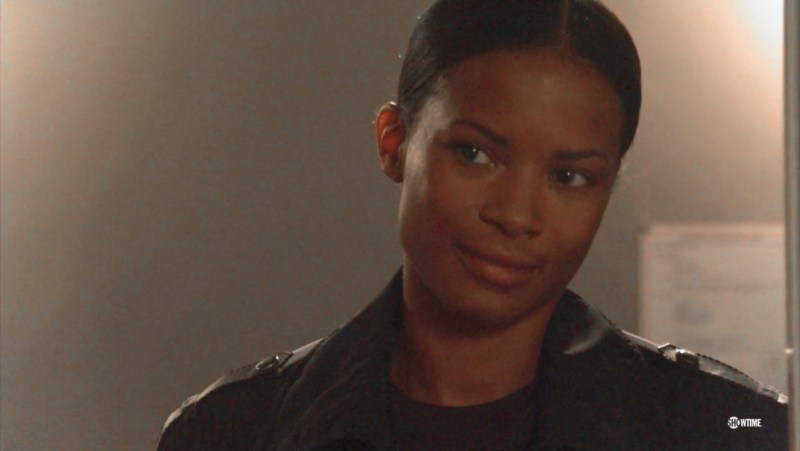
I fell in love with Tasha first.
When I was, for the first real time, grappling with my queerness. When I was trying to figure out… well… what turned me on. Spiraling out late at night, watching The L Word clips on YouTube with my headphones clasped tight around my ears and my laptop tipped at a 45 degree angle so no one else could see (a lot of you were there, you know what I mean). It was Tasha. Her gravely voice, her husky laugh, those high cheekbones. The way she smiled from beneath her lashes and the strength of her back, always at attention. Her motorcycle and that low bun and the neat severity of her hair part.That time when she blushed and told Alice that she was attracted to “girly girls.” I was a goner.
If you can stretch your mind back, past where we are now, past a time where there are so many Black queer women on television in a single year that we need a spreadsheet to keep track of them, past when Lena Waithe’s Twenties just gave us our first Black butch lead of a series in history, past the repeal of DOMA and Don’t Ask Don’t Tell, keep going back further — that’s where you will still find her, alone in a landscape that was pretty much on her own. Just Tasha and, to some extent, Kima from The Wire. Ok. Now imagine being 20, and Black, and first understanding you were gay, and looking for something anything that would tell you what that would mean. Then, and only then, you can begin to understand Tasha Williams.
Still, The L Word squandered her. There’s another version of Tasha where we learn about her internal conflicts over the Iraq War. Where she makes a decisions to leave the service, not in some cheap take on An Officer and a Gentleman where she gathers Alice up in her arms and kisses her breathless on a military base — but because she has a moral reckoning that makes her look at herself cold and hard in the mirror and ask the tough questions. There’s another version of Tasha where we get to meet her Black friends from Long Beach for more than the occasional bike ride and poker night. Where she goes home for Sunday dinners with Big Mama. A story where she is, finally, her own person.
Sadly, we never got to see it.
6. Mona Vanderwaal, Pretty Little Liars
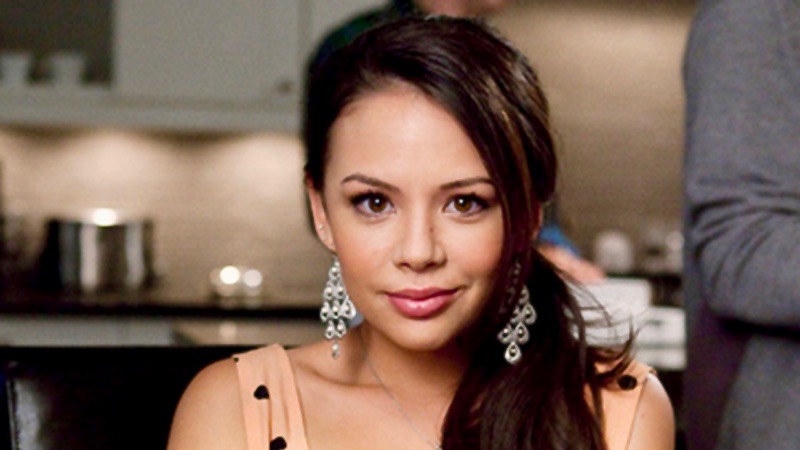
In the end, Pretty Little Liars became a show that we often try to forget. In its last years, it doubled down on transphobic storytelling decisions and storylines that excused the sexual grooming of teenagers by their grown ass men teachers. They buried quite a few gays, and in particular Black queer women at that. A plot that began as fantastical and full of heart-throbbing twists eventually became dizzying and nauseating, like riding a roller coaster one too many times. (Which, to be fair, it probably was.)
At the same time, when you pick through what’s been left in the wake of its wreckage, some things still shine like gems (or more adequately, shine like the glass in Emily Fields’ hair). Mona Vanderwaal was a teenage girl like few we’ve seen. A bullied nerd who turned the things that made her weakest into her strengths. A diva who masked insecurities with an impenetrable steel trap brain and hyperadrenalized reality — if you know, then you know — that bended the world to her very will. She sneered, she scoffed, she didn’t suffer fools gladly. But really, why should she? If she thought she was better than everyone else, that was only because she was so very clearly better than everyone else. And she would have been more than willing to save them, if only the other Liars would have ever listened to her.
5. Annalise Keating, How to Get Away with Murder
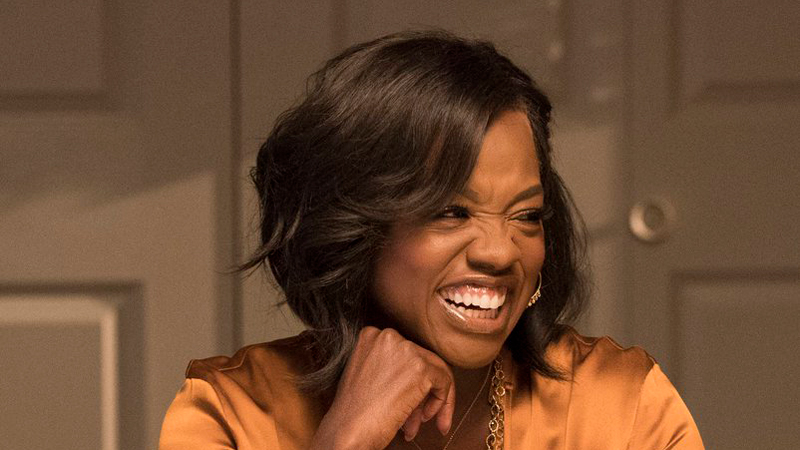
Annalise Keating is the stuff of legends. When describing talented actors, “unrivaled” is a word we probably use too often — but when the only name people even think to compare to yours is Meryl Streep, you know you’re a bad bitch. And Viola Davis is baaaad bitch (said respectfully, of course).
Annalise Keating is the first — and thus far, the only — queer Black woman character to lead her own network drama. In the role, Viola Davis made history, becoming the first — and thus far, the only — Black woman to win an Emmy for Outstanding Lead Actress in a Drama. She was complicated and introspective and sometimes, destructive, but in the most delicious ways that you thought about and re-twisted in your mind long after the show closed for the night. Like I said, a legend.
At times How to Get Away with Murder fell victim to its own convoluted plots, hampering Davis’ performance (and likely, any future Emmys for the role).Annalise was also saddled with a cohort of students who never appreciated her, who often resorted to gaslighting her that she was the source of all of their problems. Even though all she ever did was put her career on the line to solve them.
While watching Annalise Keating grapple with, and eventual overcome, her internalized homophobia was a storyline taken with exquisite care that I delighted in — I would have loved to see Annalise find her way to peace a little bit sooner. If only so we could have reveled in it along with her.
4. Olivia Pope, Scandal
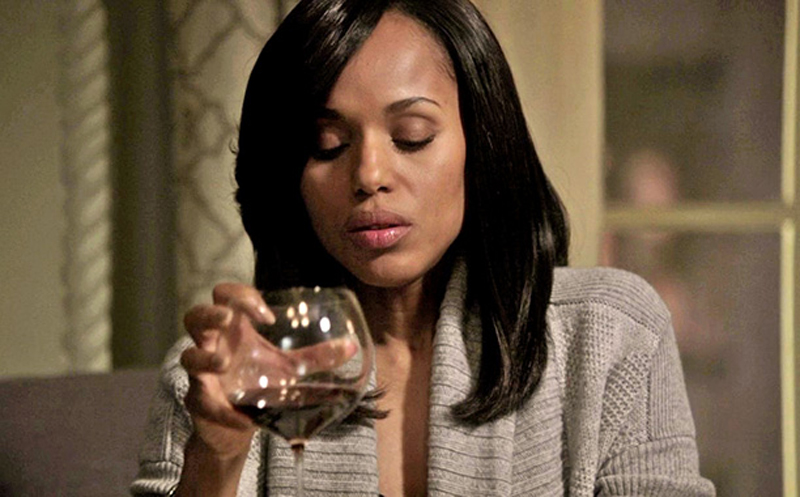
Much like Annalise Keating, Olivia Pope was the star of her own show. And like Viola Davis, in this role, Kerry Washington at last shattered a glass celling for Black actresses in Hollywood — this time, by becoming the first Black woman to lead a network drama in over three decades. What made that feat magic was that after Kerry did it, she was far from the only one. She brought so many with her to the table: Taraji P. Henson as Cookie Lyon, Nicole Beharie as Abbie Mills and of course, Viola Davis as Annalise Keating.
Olivia wasn’t just a lead, she was A Boss. She made click-clacking in designer heels and fast-talking an aspirational way of life. So what does it say that this generation-defining character became so closely tied to cleaning up white mess after white mess. Not even to mention that overgrown, over-privileged, whiny baby of a President that she couldn’t seem to quit loving.
Please don’t get me wrong, Olivia Pope was the hero of her own story. I would never disrespect Shonda Rhimes’ or Kerry Washington’s work by saying different. But I — the young Black woman sitting at home watching this powerful lightning rod of a woman become broken by mediocre white men over and over again, having nothing but heartbreak, fabulous knit sweaters, and bottles of wine to call the comfort of her own — I deserved better.
3. Santana Lopez, Glee
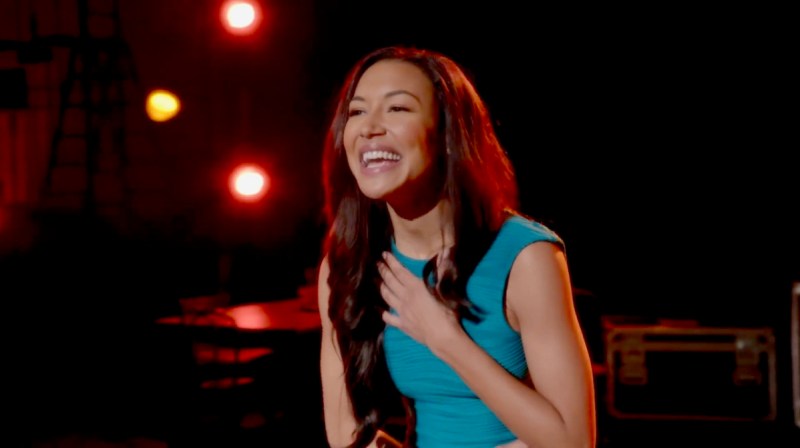
From me, the week that we lost Naya:
Santana was too bright, too once-in-a-lifetime, and Naya Rivera worked too hard at her career for far too long, taking bit commercials and one-off guest stars since she was a child, for this not to be her moment. It’s not behind the scenes drama to simply state that there are less opportunities for Black Latina girls in Hollywood. Those are the facts of structural racism. As Santana Lopez, Naya Rivera beat odds, and she changed any previously conceived scripts about whom people would care about in a mainstream teen show — they could care just as much about the Latina lesbian as they would about the white heterosexual leads…. She’s the star.
There really was nothing like Glee. And at its worst, very little was as actively harmful. But as Santana Lopez, Naya Rivera shined a light on the best of us. On set, she out-worked everyone around her. And that’s not me, that’s her own cast mates saying that!
Damn. She deserved the world.
2. Calliope Iphegenia Torres, Grey’s Anatomy
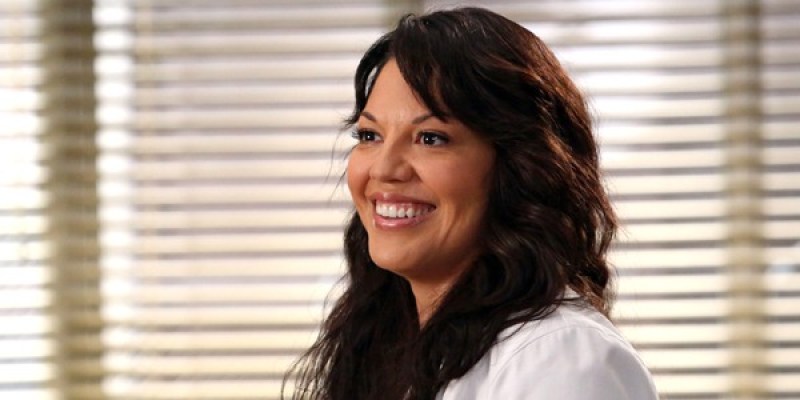
Clocking in at a full decade of time spent with us, Callie Torres is the longest running queer woman character in television history, played by an iconic actor who publicly came out as bisexual a mere months after Callie left our screens, only further solidifying the role as an foundational part of our culture and history. She was one of the first characters to actually say the words “bisexual” on television. When she married her ex-wife Arizona Robbins, over 10 million viewers tuned in. Given these bonafides (Calliope Iphegenia Torres, put some respect on her name!), it might surprise you to see her on this list.
Callie Torres deserved better than her ending from the mainstay series. She deserved better than a bitter, insensitive custody agreement that was so wholly out of her character. She deserved a proper goodbye and not a rushed, tear-filled hug with Arizona at her front door. And more than anything, my God, she deserved more than that “Perfect” effing Penny.
1. Poussey Washington, Orange is the New Black
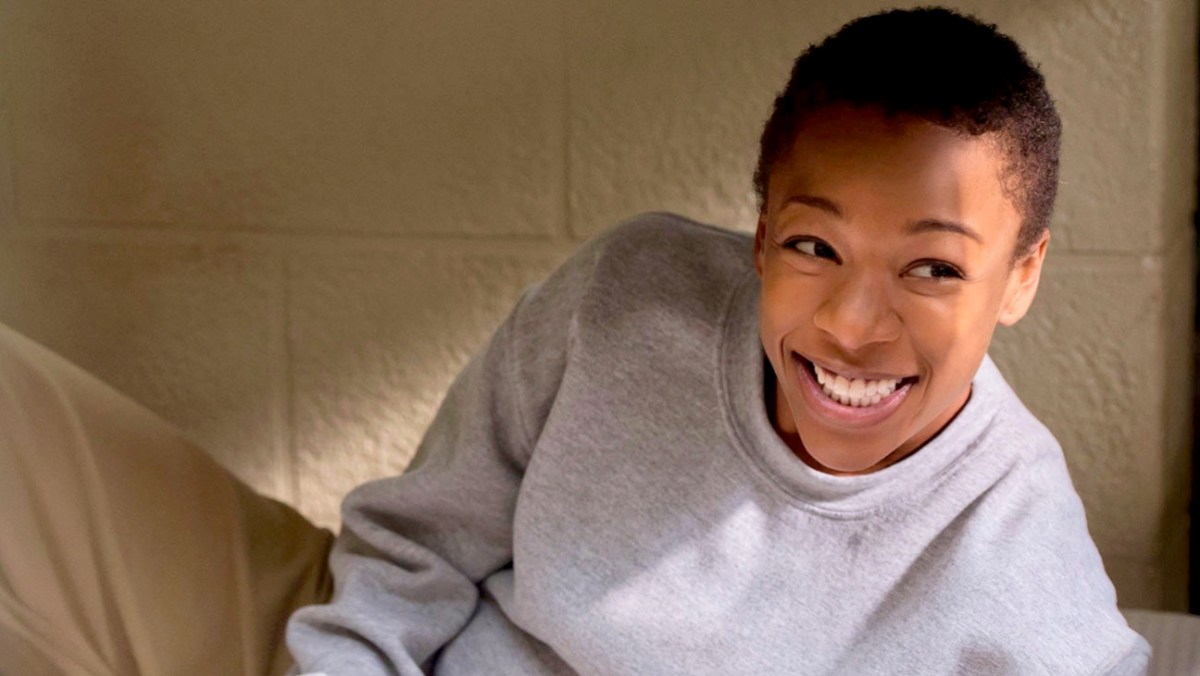
Look at that smile. Look at that face.
It has been over four years. I’ll never shake my rage.
Poussey Washington Deserved Better Than To Be Their Martyr.
Honorable Mentions: Bette Porter (The L Word/Generation Q), Emma Hernandez (Vida), Eddie Martinez (Vida), Penelope and Elena Alvarez (One Day at a Time), Tyra Collette (Friday Night Lights), Khadijah James (Living Single), Regina Mills (Once Upon a Time), Blanca Evangelista (Pose), CJ Cregg (The West Wing), Tegan Price (How to Get Away with Murder), Moesha Mitchell (Moesha), and Joan Carol Clayton (Girlfriends)
Where to stream gay TV:
89 Queer TV Shows to Stream on Netflix
32 Lesbian, Queer & Bisexual (LGBTQ+) TV Shows Streaming Free on Amazon Prime
62 TV Shows On Hulu with LGBTQ+ Characters



I still remember being post-college, just barely out of the closet, watching The L Word on some illegal torrent site, asking myself “Are you *really* queer if you haven’t been with a girl yet?”, and Tasha strolled onto the screen with her smile and her gorgeous deep laugh. There was no doubt I was queer after that!
I agree that she deserved so much better than what the show gave her, and would love a Tasha spinoff in a post-DADT world.
this is a list that is part of a series about things we like but … this is so much more than that! damn. anyhow i love you
Maybe season two of gen q they can bring Tasha back but have her character done right?
calliope torres! she changed my g-damn life and i’ll still follow sara ramirez wherever they lead (side note, according to their insta sara is genderqueer and uses both she/her and they/them which caused many excited texts between my sib and i)
Such a good list, Carmen. True gems even if it dealt me some emotional damage to be reminded of how dirty their respective shows did them.
I absolutely came into this fully expecting to see Khadijah James on this list, even if canon didn’t want me to, and you did not disappoint in the honorable mentions!
Mina!! Thank you! This means a lot. (In another version of this list, no worries, Khadijah makes the top 10. I’ll never forget about our girl!)
Callie Torres wasnt the first queer lady I saw on TV, but she was the one that made me realize how poorly tv shows treated their gay ladies. Her coming out story and sexuality wasn’t treated like a stunt or something to be consumed by straight men like I had seen on other tv shows at the time. She seemed authentically bisexual instead of having a girlfriend for a few episodes before never mentioning it again.